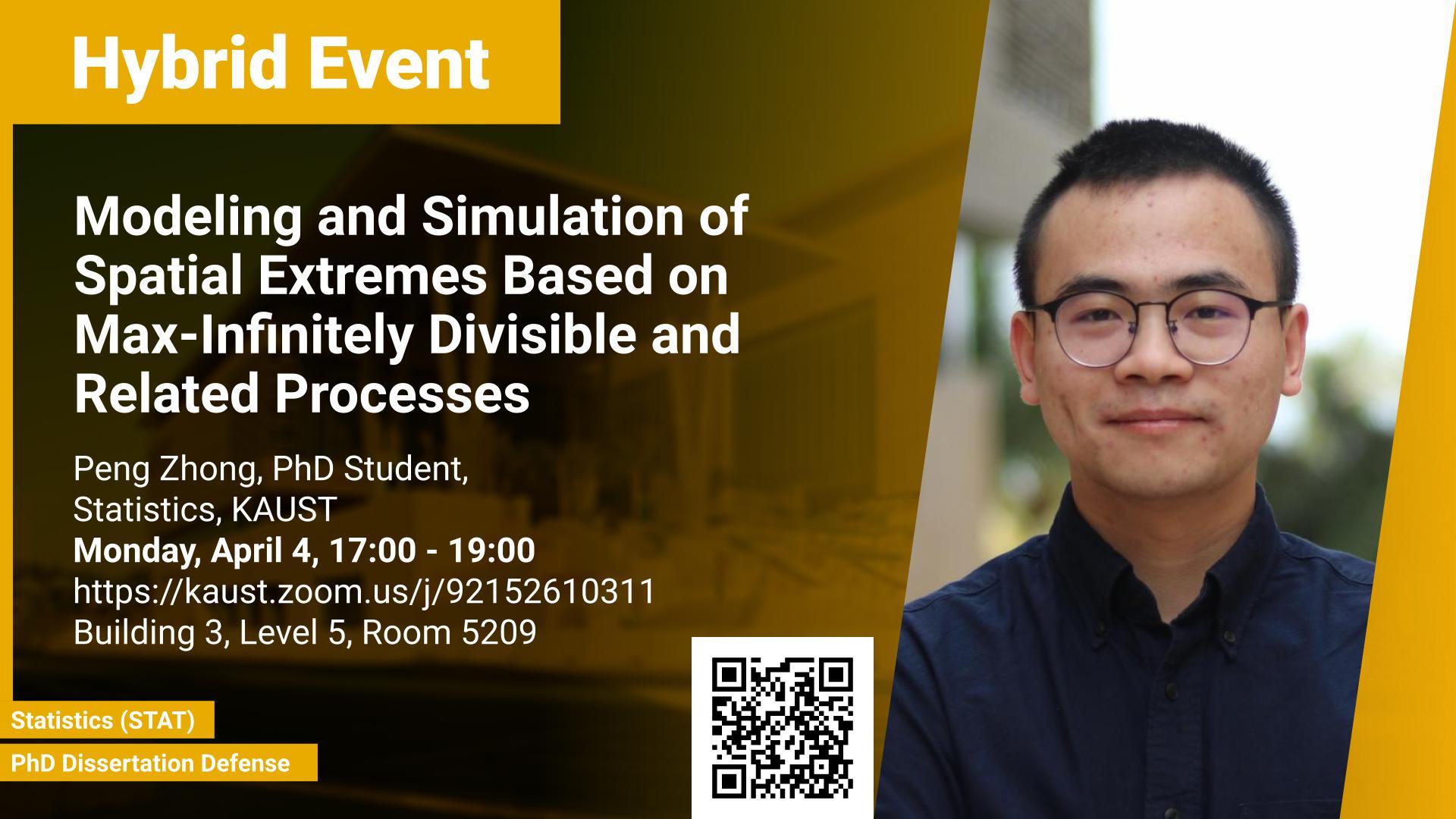Abstract
The statistical modeling of extreme natural hazards is becoming increasingly important due to climate change, whose effects have been increasingly visible throughout the last decades. It is thus crucial to understand the dependence structure of rare, high-impact events over space and time for realistic risk assessment. For spatial extremes, max-stable processes have played a central role in modeling block maxima. However, the spatial tail dependence strength is persistent across quantile levels in those models, which is often not realistic in practice. This lack of flexibility implies that max-stable processes cannot capture weakening dependence at increasingly extreme levels, resulting in a drastic overestimation of joint tail risk.
To address this, we develop new dependence models in this thesis from the class of max-infinitely divisible (max-id) processes, which contain max-stable processes as a subclass and are flexible enough to capture different types of dependence structures. Furthermore, exact simulation algorithms for general max-id processes are typically not straightforward due to their complex formulations. Both Simulation and inference can be computationally prohibitive in high dimensions. Fast and exact simulation algorithms to simulate max-id processes are provided, together with methods to implement our models in high dimensions based on Vecchia approximation method. These proposed methodologies are illustrated through various environmental datasets, including air temperature data in South-Eastern Europe in an attempt to assess the effect of climate change on heatwave hazard, and sea surface temperature data for the entire Red Sea. In another application focused on assessing how the spatial extent of extreme precipitation has changed over time, we develop new non-stationary r-Pareto processes, which are the counterparts of max-stable processes for high threshold exceedances.
Brief Biography
Peng Zhong is a Ph.D. student supervised by Prof. Raphaël Huser in the Statistics Program at King Abdullah University of Science and Technology. He received his B.Sc. degree in financial mathematics from the Southern University of Science and Technology, Shenzhen, China, in 2017. His research interests include climate extremes, spatiotemporal statistics, high-dimensional inference, and computational statistics.

